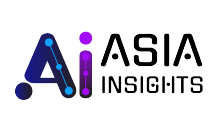The rise of artificial intelligence heralds a new era, one where a web of algorithms rather than a network of people performs both complex and rudimentary tasks. Thailand plans to capitalize on this new technology to address important social and developmental challenges. The possibilities of artificial intelligence in Thailand could usher in the vision of Thailand 4.0: a Thailand with a value-based economy driven by innovation, technology and creativity.
Artificial Intelligence and Mapping Poverty
The Asian Development Bank published a report about how artificial intelligence and machine learning software could revolutionize the way countries track poverty. The bank coordinated a research collaboration between the World Data Lab and the governments of the Philippines and Thailand. The goal was to assess whether or not satellite images could provide a more geographically precise measurement of poverty. The researchers found that satellite images in combination with national survey data on poverty could indicate poverty levels. Poverty measures could even be conducted in an area as small as a 4km-by-4km square space.
The Thai government only gathers data about poverty every two years. Additionally, the survey responses in lower-income areas can be spotty. These findings could therefore help Thailand and similar countries overcome administrative difficulties. Moreover, with this increased granular poverty data, government programs could direct focus and resources to areas that need them most. This will increase both the efficiency and effectiveness of policies.
Other research has found that satellite imagery could accurately indicate the location and concentration of poverty in Thailand even without incorporating survey data. If the results are corroborated through further studies of different countries, then satellite images could help countries keep track of poverty even when survey data is unavailable.
Artificial Intelligence Promotes Health Development
The Thai Ministry of Public Health pioneered a program in 2019 utilizing machine learning to mitigate the spread of diseases. To begin, 2,000 volunteers photographed public restrooms throughout Thailand. With these pictures, the ministry coded machine-learning software to recognize what constitutes a clean restroom versus an unsanitary restroom. The software could then assign restrooms a cleanliness score, which can guide public sanitation responses and resources. Volunteers and local restroom operations staff can now share photographs through an app. This increases how well public authorities can prevent public restrooms from becoming disease hotspots.
In Khon Kaen, a city in northern Thailand, the Digital Economy Promotion Agency has initiated various artificial intelligence programs as part of its “smart cities” agenda. One such program expedites how quickly hospitals dispatch ambulances. It triggers an alert based on health-related input from smart devices worn by patients. These would also allow health workers to better diagnose patients before they arrive at the hospital. The city also employs smart devices to monitor patients in intensive-care units. In the future, the program wants to use smart devices on a societal level to provide more detailed and up-to-date information about the state of public health.
Technological-Based Future
Against this backdrop, artificial intelligence in Thailand poses a chance for improvement in multiple sectors of life. It challenges Thailand to innovate and adapt in order to be competitive in the global economy. It enables the government to fight poverty and other developmental risks in a more data-driven and impactful way. Incorporation of artificial intelligence in Thailand builds a future that is good for the economy as well as the overall health of Thai citizens.
This article was originally published on Borgen Magazine by Alexander Vanezis on 29 June 2021.



